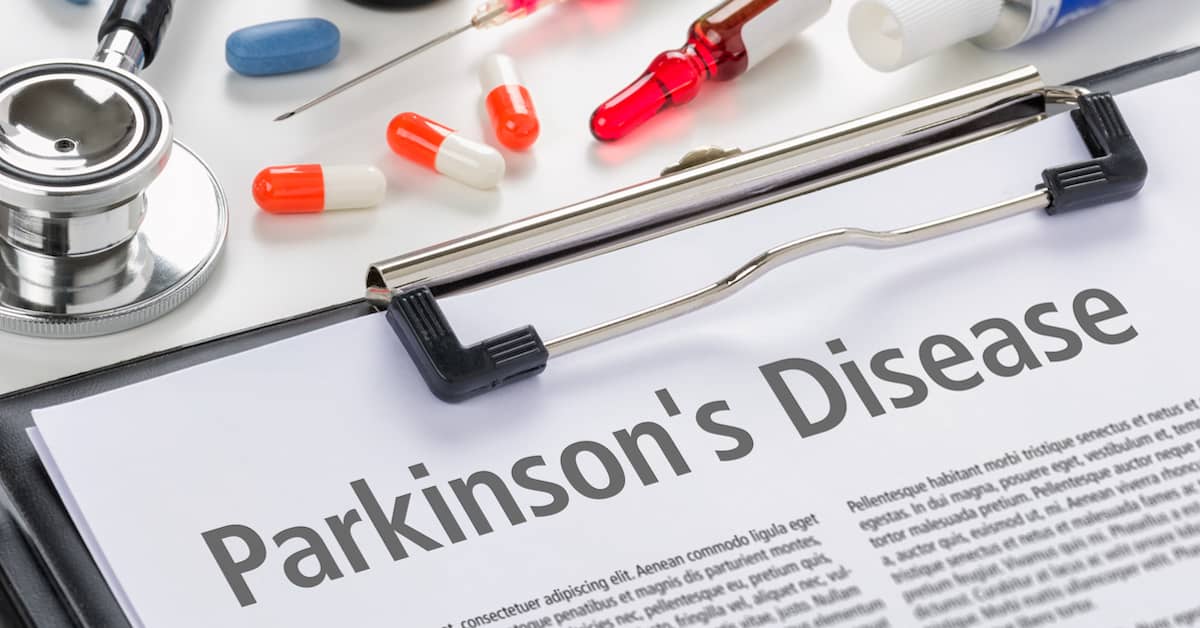
Even “Banned” Chemicals are Causing Trouble
Added to that discovery, a study at UCLA shows that exposure to the chemical benomyl, which has been banned but still lingers in the environment, is linked to developing Parkinson’s and potentially worsening the disease in people who already have the condition. The UCLA scientists say that their work indicates that the increased Parkinson’s risk in agricultural workers and people living near farm fields may be associated with the pesticides currently applied to crops along with the persistence of chemicals like benomyl that used to be applied there. This investigation demonstrates that benomyl – a fungicide – interferes with an enzyme in the brain known as ALDH, which functions as protection against a chemical called DOPAL, which naturally occurs in brain tissue. This enzyme is effectively “inactivated” by toxins, resulting in the accumulation of DOPAL, which injures neurons and causes a series of events that can lead to Parkinson’s.2 "We've known that in animal models and cell cultures, agricultural pesticides trigger a neurodegenerative process that leads to Parkinson's," says researcher Jeff Bronstein. "And epidemiologic studies have consistently shown the disease occurs at high rates among farmers and in rural populations.”Toxic Air Pollution
The toxins we inhale from polluted air can also enhance the chances of developing Parkinson’s disease. According to a study coordinated at Harvard, when our lungs are exposed to significant amounts of tiny particulate matter (known as PM2.5), those particles make us more vulnerable to Parkinson’s as well as Alzheimer’s disease and other types of dementia. Particles that are classified as PM2.5 are smaller than 2.5 micrometers – about 100 times slimmer than a human hair. This study involved an analysis of 17 years’ worth of hospital admissions of more than 63 million Medicare recipients. The hospital records were correlated with records of air pollution levels in counties across the United States from 2000 to 2016. The research showed that the number of first-time admissions to hospitals for Parkinson’s was linked to higher air pollution levels of PM2.5. And older people in the northeastern U.S. were most often affected.3 "Our U.S.-wide study shows that the current (air pollution) standards are not protecting the aging American population enough, highlighting the need for stricter standards and policies that help further reduce PM2.5 concentrations and improve air quality overall," says researcher Antonella Zanobetti, who is with Harvard’s T. H. Chan School of Public Health.New Studies Underway
Meanwhile, researchers at the University of California – San Francisco are investigating whether chemical exposures experienced by military personnel may be linked to Parkinson’s disease. That study, which is ongoing, will gather information on 200,000 service members to analyze their toxin exposures and their rate of Parkinson’s disease. In addition, researchers at Washington State University are tracking the health of 22 million Medicare recipients to see if geographic clusters of Parkinson’s cases can be used to reveal other specific toxins linked to the development of the disease.Protecting Against Parkinson’s Disease
Parkinson’s is the second most common neurodegenerative disease – right behind Alzheimer’s. As Parkinson’s disease progresses, neurons in the brain are damaged and die off. In particular, neurons that release the neurotransmitter dopamine disappear or cease functioning properly. If you want to lower your risk for the condition, your best bets include enjoying:- Vigorous exercise – A study at the National Institute of Environmental Health Sciences shows that engaging in strenuous exercise may lower your risk of Parkinson’s by up to 40 percent.4
- A Mediterranean diet – While a study in Canada did not show that eating a Mediterranean style diet could lower the lifetime risk of Parkinson’s, it concluded that, on average, the condition occurred later in life for those who ate this type of diet.5
- Increased caffeine consumption – A wide range of studies shows that people who consume caffeine have a lower risk of Parkinson’s. And recent research at Auburn University in Alabama demonstrates that caffeine “restores endogenous antioxidant levels (in brain tissue) and suppresses neuroinflammation.”6
- Organic food, when possible. Considering the current research linking pesticide and herbicide exposure to the development of Parkinson’s, as well as a host of other illnesses, it’s a good idea to eat organic food whenever possible.
My Takeaway
I’m not surprised that the early research is leaning towards environmental toxins as a cause of Parkinson’s disease. I’d also be willing to bet that as the research continues the link will grow stronger for an environmental cause for Parkinson’s disease and the list of toxins related to this illness will grow. While the researchers continue their investigations, it’s prudent to do what you can to remove as many chemical toxins from your daily life as possible. In addition to eating organic food, you can also choose cleaning products and other household supplies and furnishings that are devoid of toxic chemicals. When possible, you can assess the location of your home and work environments and whether they put you at greater risk of toxin exposure. Sometimes it’s possible to make adjustments here and sometimes it’s not, but this is worth considering.- https://www.ncbi.nlm.nih.gov/pmc/articles/PMC6313412/
- https://pubmed.ncbi.nlm.nih.gov/23267077/
- https://www.thelancet.com/journals/lanplh/article/PIIS2542-5196(20)30227-8/fulltext#
- https://www.ncbi.nlm.nih.gov/pmc/articles/PMC2918886/
- https://pubmed.ncbi.nlm.nih.gov/33404118/
- https://pubmed.ncbi.nlm.nih.gov/34004240/
